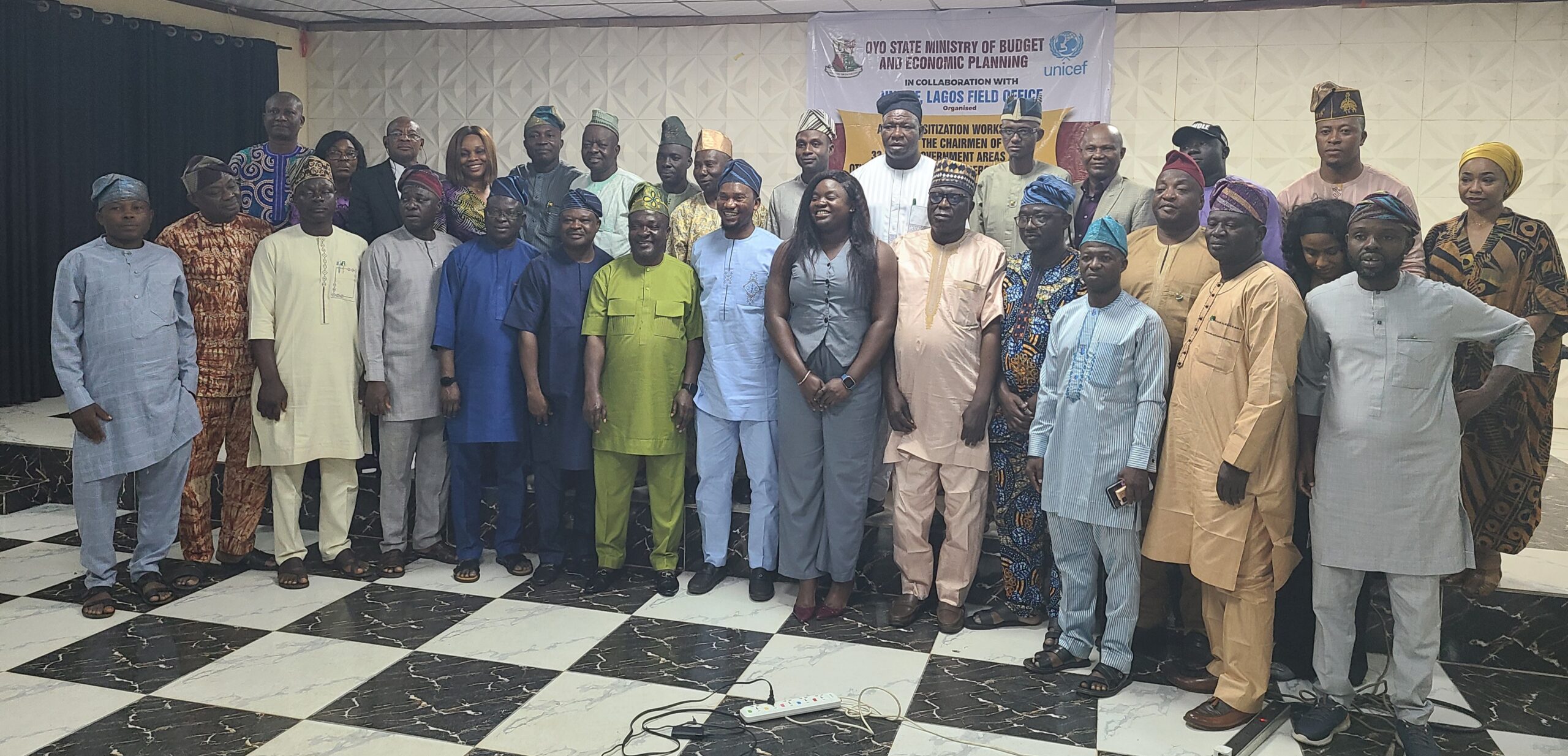The United Nations Children’s Fund (UNICEF) has sounded the alarm over the chronic underfunding of child rights services in Oyo State, urging grassroots stakeholders to take urgent action in reversing the trend.
This concern was spotlighted during a sensitization workshop held for the chairmen of the 33 local government areas of the state. The workshop, themed “Strengthening Local Governance for Child Rights Realization in Oyo State”, was organized by the state’s Ministry of Budget and Economic Planning in collaboration with UNICEF’s Lagos Field Office.
The call to action touched on the vital role of local governments in championing children’s rights, including access to healthcare, education, sanitation, child protection, and social inclusion. Participants agreed that local authorities must be at the forefront of policy implementation to address systemic challenges affecting children.
Declaring the workshop open, the Commissioner for Budget and Economic Planning, Prof. Musbau Babatunde, stressed the significance of local governance in fulfilling the promise of child rights. He was represented by the Executive Assistant to the Governor on Economic Planning, Hon. Kolawole Gafar, who acknowledged the longstanding partnership between UNICEF and the state.
Gafar revealed that UNICEF has pledged over $5 million in 2025 to support child-focused interventions in Oyo State on the heels of a 3 year partnership plan worth 16 million dollars.
“Together, we can leverage our resources, knowledge, and expertise to create impactful programs that address the unique challenges faced by children in our communities,” he said.
He added that education must be treated as a top priority. “It is a fundamental right of every child, and it is our duty to ensure universal access to quality education,” he stressed.
However, he pointed out that effective implementation at the grassroots level is threatened by limited resources, logistical challenges, and the need for stronger capacity building. He called for improved transparency, regular feedback mechanisms, and joint problem-solving approaches to maximize impact and sustainability.
Meanwhile, UNICEF’s Social Policy Specialist from the Lagos Field Office, Mohammed Okorie, who reiterated that children’s rights are non-negotiable, called for more collaboration with local leaders to address deprivation. He solicited increased budgeting toward child welfare.
According to data shared by UNICEF, the situation in Oyo State remains grim:
– 31 out of every 1,000 live births die within the first month, and 40 within the first year.
– Only 10 percent of the population is enrolled in the Oyo State Health Insurance Scheme (OYSHIA), limiting healthcare access.
– Stunting affects 23 percent of children.
– The state has the lowest birth registration rate in the South West.
– It also has the highest prevalence of Female Genital Mutilation (FGM) in the region at 43.2 percent.
UNICEF apprised that these statistics point to a deeper systemic problem that can only be tackled with strong commitment at the grassroots level. The organization urged stakeholders to embrace data-driven planning, structured implementation strategies, and shared accountability in the quest to meet the 2040 agenda for child health and rights.
The opening dialogue concluded with a renewed commitment from local government leaders and the state government to scale up investment, planning, and collaborative efforts to secure a better future for children in Oyo State.

